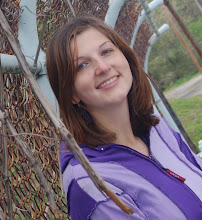But is it true that more liquor stores leads to more drinking and drunk driving? Yet 17.6% of our population admits to binge drinking (7th in the nation). In sheer numbers, Pennsylvania ranked 4th in the nation for number of alcohol related fatalities (which is partly reflected by our #6 population rank). When it comes to underage drinking, we fall in the list to #22 with 30% of our minors drinking. Though 20% of them binge drink (which puts us at #18). There's only one other state in the nation (New Hampshire) which has a state run liquor store. Shouldn't we be tied for last with them in all these statistics if state run liquor stores can prevent drinking and drunk driving?
The farce of the matter is that our politicians hide behind our well-meaning alarmists in order to keep the profits from the state liquor stores headed into the general fund. We do not maintain state liquor stores for safety or to prevent underage drinking. We maintain these stores because they bring in record profits every year. The state has no business in running liquor stores. It's a bloated business that sends out glossy advertisements in the newspaper every week, and severely limits entrepreneurship in the state. The 621 state-run liquor stores could be small businesses that pay taxes and contribute to our society. Instead, we have a monopoly which does not adapt to the individual needs of each region. Instead of attempting to limit alcohol consumption and educate consumers about the dangers of alcohol, the PLCB (Pennsylvania Liquor Control Board) is planning self-serve kiosks and wants to re-brand itself with a new name, such as "Table Leaf."
Customers spend an average of three minutes in a liquor store, PLCB Chairman Patrick J. Stapleton told a state House-Senate committee recently. He called that “unacceptable.”Rebecca Shaver, do you really want the PLCB chairman plotting on how to get customers to spend more time in the liquor store?
Officials said the renovations and new focus could generate more money for the state. The PLCB provided the state with more than $518 million for the 2008-09 fiscal year.



5 comments:
However, Mike Turzai who is pushing this bill is doing so as a means of raising money for the state, not to curtail problems associated with alcohol consumption. The Post Gazette quoted an estimate that selling licenses could raise between $2B and $6B. Two problems: Why is the range of this estimate so wide? And, why did the paper fail to include in the article another figure that is absolutely crucial to understanding the economics of the proposed policy change, that is, the amount of money the State Stores yield to the state on a recurring annual basis, which to my recollection is in the area of $500M. Therefore, Turzai's plan would be a money-looser for the state in as little as 4 years after implementation. Personally, I just wish that the state stores would extend their hours past 9pm.
I don't get how they can do it for safety yet are the ones selling it, encouraging it. People are going to drink no matter who sells it.
MADD sells lies. And business is good.
http://www.drunkard.com/issues/08_02/08_02_fighting_madd.htm
I agree with the sentiment of this blog, however, Pennsylvania and New Hampshire are not the only states that have state owned liquor stores. I used to live in Washington and before that in Oregon (my step daughter still lives in Oregon). Both states have state owned liquor stores.
I stand corrected, Thomas. On further reflection, there are 9 states that run their own liquor stores: Alabama, Idaho, New Hampshire, Oregon, North Carolina, Pennsylvania, Virginia, Washington, and Utah.
(source: wikipedia
Post a Comment